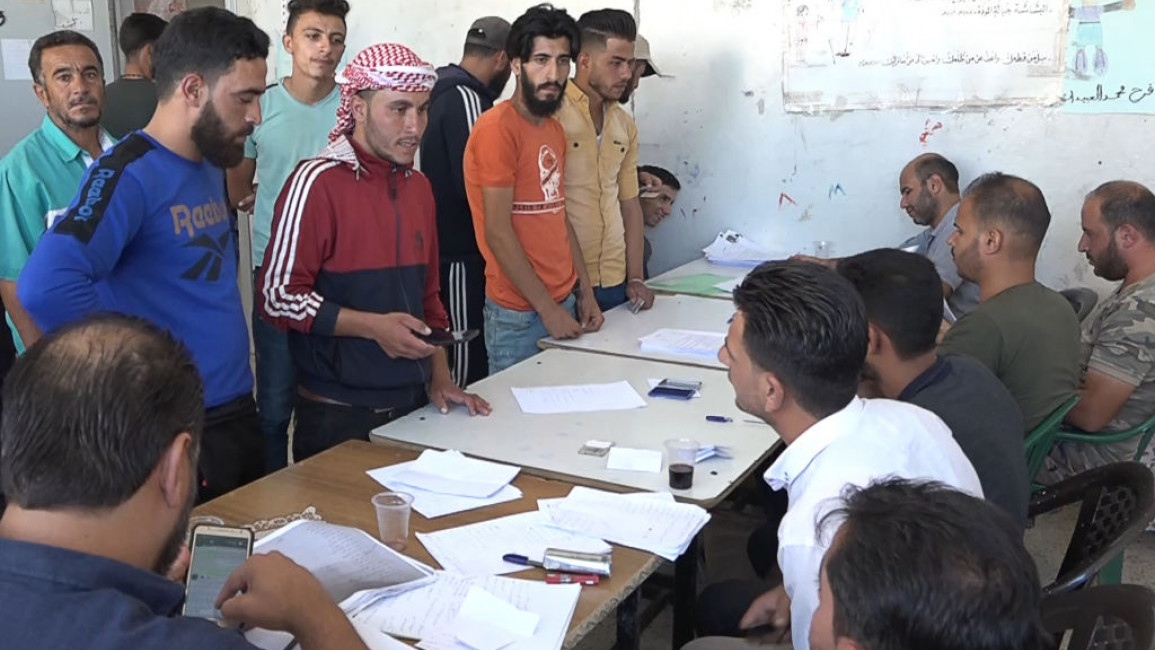Instability returns to Daraa post-reconciliation with spate of assassinations
Eighteen people have been assassinated in Daraa governorate of southern Syria over the last month, a local monitor told The New Arab on Friday.
The spree of assassinations comes off the back of another bloody month, as tensions between opposition and regime fighters, as well as personal feuds, come to a head.
“Over the last month, we have documented 22 assassination operations and attempts, which killed 18 people and injured three – five people survived the attempted assassinations [unhurt],” a member of the documentation arm of the Horan Free League, an opposition-leaning local media outlet, told The New Arab.
In one case, six regime soldiers were killed in one day from both improvised explosive devices (IEDs) and shootings. On 17 November, two civilians were shot to death in eastern Daraa. In both cases the perpetrators were unknown, which is typical in episodes of violence in Daraa.
The assassinations interrupt a brief respite from the violence which has plagued the former-rebel held southern province since its recapture by regime forces and their allied militias in the summer of 2018.
After Daraa was recaptured, the regime and Russia launched what were known as “reconciliation agreements.” These agreements gave the province a degree of autonomy, as well as granted amnesty to former opposition fighters and allowed them to keep light arms like pistols and rifles.
Despite the existence of the reconciliation agreements, the last three years had been characterised by lawlessness. Armed gangs acted with impunity in many cities in Daraa, and civilians were caught in the crossfire as regime forces and opposition elements conducted back and forth assassination attempts.
This arrangement between Daraa and the regime held until the summer of 2021, when regime forces imposed a two-month long siege of Daraa al-Balad after the latter rejected the results of Syria’s sham presidential elections.
The siege erupted in fighting between opposition fighters and regime forces, eventually ending with the former accepting a new reconciliation agreement with the regime. The new deal entailed the surrendering of light weaponry and the establishment of regime checkpoints throughout the city.
Regime forces soon rolled over the rest of Daraa province and several other towns and cities signed similar deals. As a result, the autonomy Daraa province enjoyed since the summer of 2018 was effectively ended.
The state has described these new reconciliation deals as a way to end the lawlessness of the last three years. It has also announced a series of new initiatives aimed at improving living conditions in the southern province.
Over the last two months, the regime has announced over 4.5 billion Syrian pounds ($1.3 million) worth of funding to better services in Daraa, released dozens of detainees from regime prisons and opened a “consular office” for the area. The regime also replaced the military governor of the province with a civilian official.
The purpose of such initiatives, especially the improved service provisions, is “not only to win ‘hearts and minds’ … but also convince the populations of other southern localities that the advantages of surrendering outweighed those of resisting,” according to Abdo Jabassini, a non-resident scholar at the Middle East Institute.
Service provision and rehabilitation of infrastructure is sorely needed, as punishing shelling from regime forces and Russian air strikes has left about 80 percent of infrastructure damaged, according to local activists.
Maintaining stability in the newly-reconquered areas of southern Syria is a policy priority for the regime, as vital trade routes run through the governorate. During the siege of Daraa al-Balad, the border Nassib-Jaber border crossing with Jordan was closed after opposition-held elements took control of the area.
Syria’s civil war has been ongoing for over a decade, following a popular revolution in 2011. Estimates vary, but at least 350,000 civilians and combatants have been killed over the last ten years, leading to international condemnation of the Syrian regime.
Recently, a number of countries have made moves to normalize relations with the regime. High level diplomatic contact with the regime has been publicised, such as when Syrian President Bashar al-Assad and Jordan’s King Abdullah spoke in October.
The United States has condemned normalisation with the Assad regime and said it would oppose attempts to re-integrate the Assad regime into the international community.



